Story sequencing Reading Fiction Worksheets for Ages 3-4
13 filtered results
-
From - To
Discover the joy of storytelling with our "Story Sequencing Reading Fiction Worksheets for Ages 3-4." These engaging worksheets are designed to enhance young learners' reading comprehension and storytelling skills. Children will have fun while improving their ability to sequence events, recognize patterns, and understand story structure. Perfect for preschoolers, these worksheets help lay a strong foundation for early literacy. With colorful illustrations and interactive activities, kids will develop critical thinking and cognitive abilities in an enjoyable, stress-free manner. Foster a love for reading and learning from an early age with our expertly crafted story sequencing worksheets.
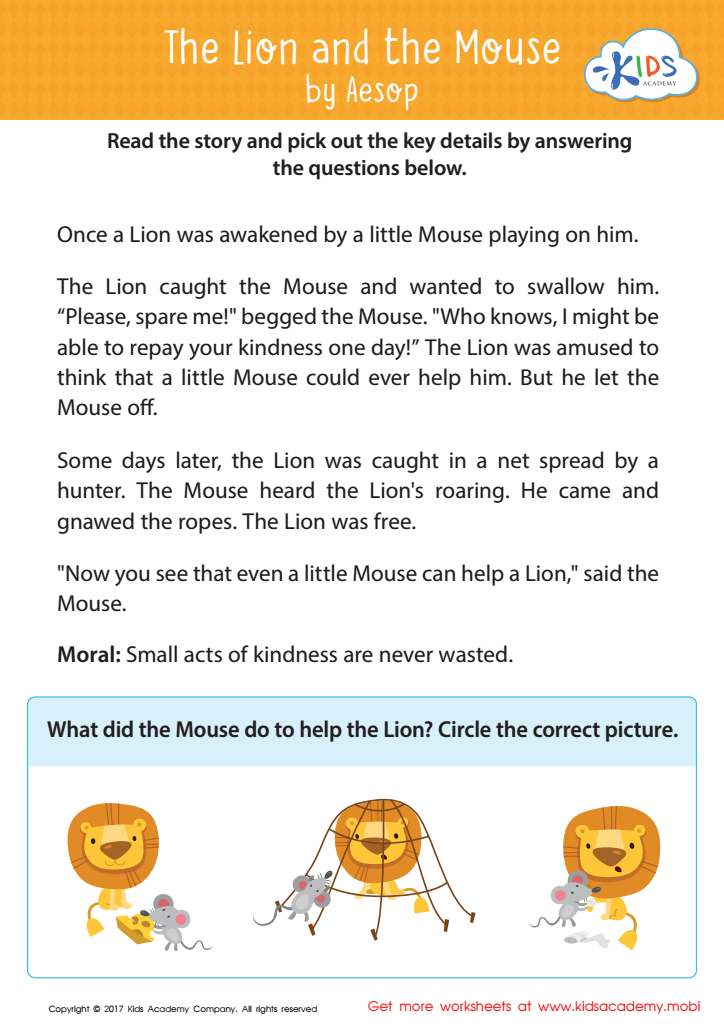

The Lion and The Mouse Sequencing Worksheet
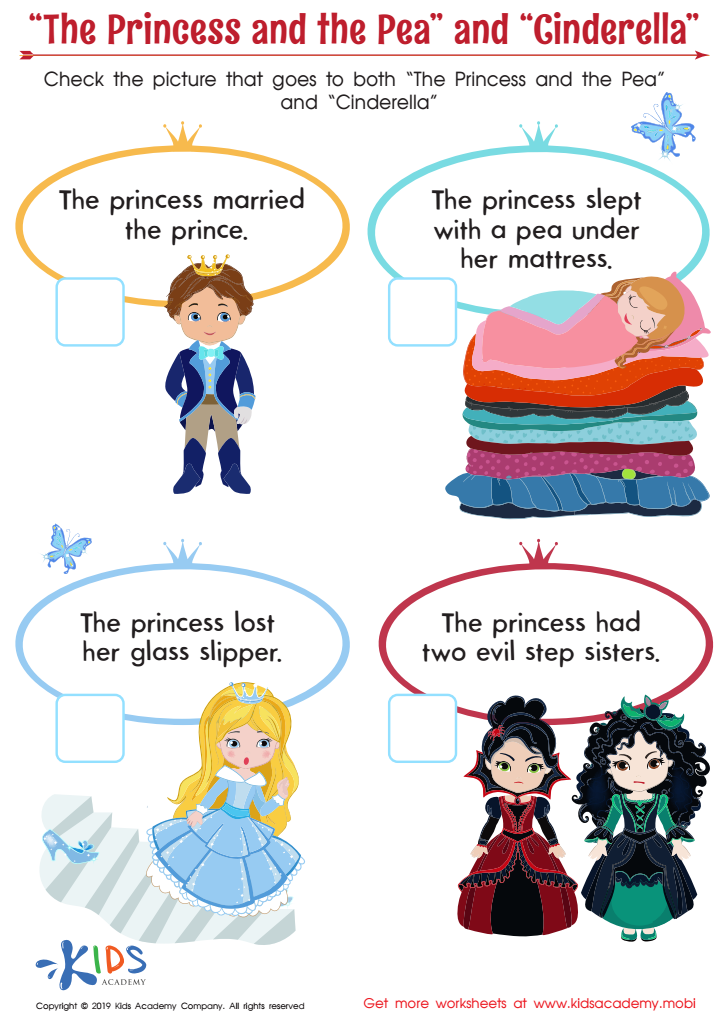

“The Princess and the Pea” and “Cinderella” Worksheet
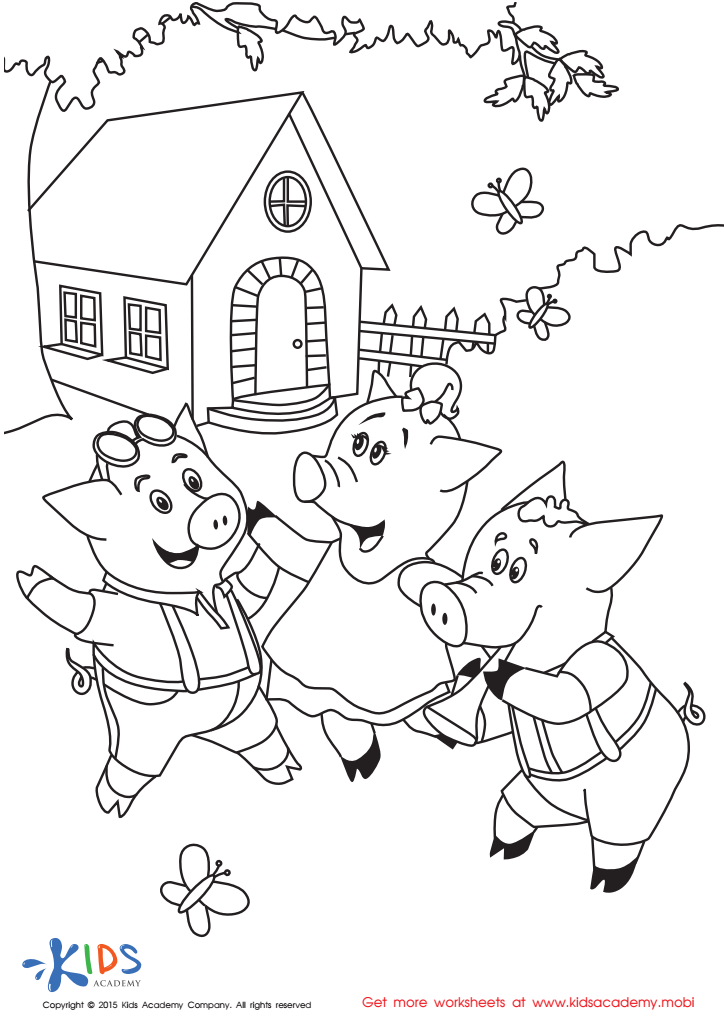

Folktales Printable PDF Worksheet: The 3 Little Pigs
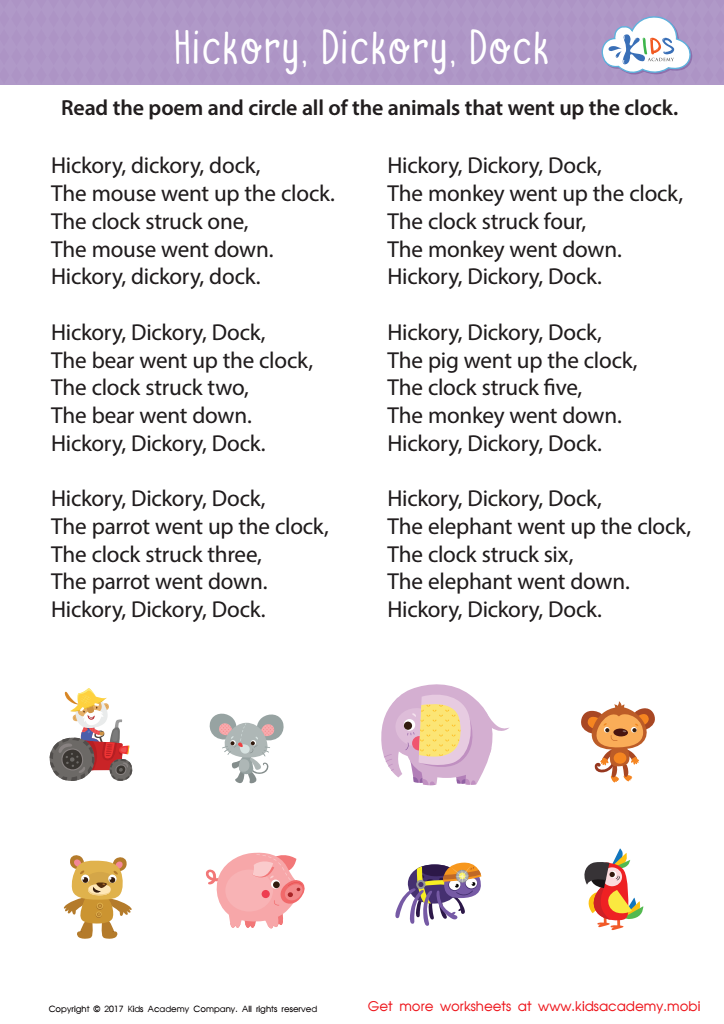

Hickory Dickory Dock Sequencing Worksheet
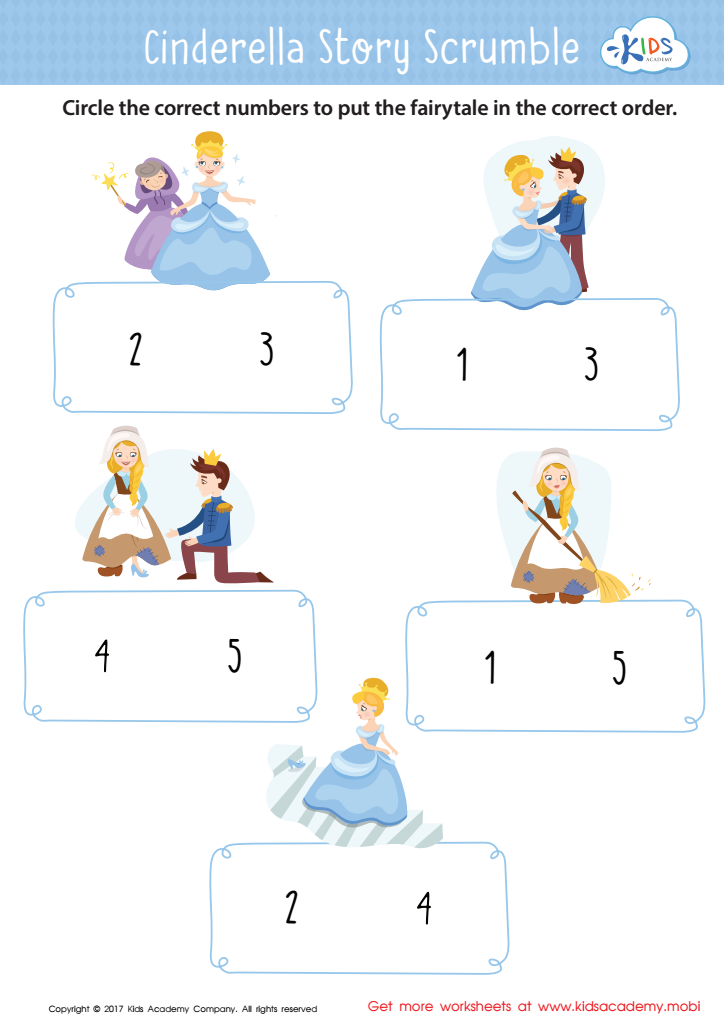

Cinderella Story Sequencing Worksheet
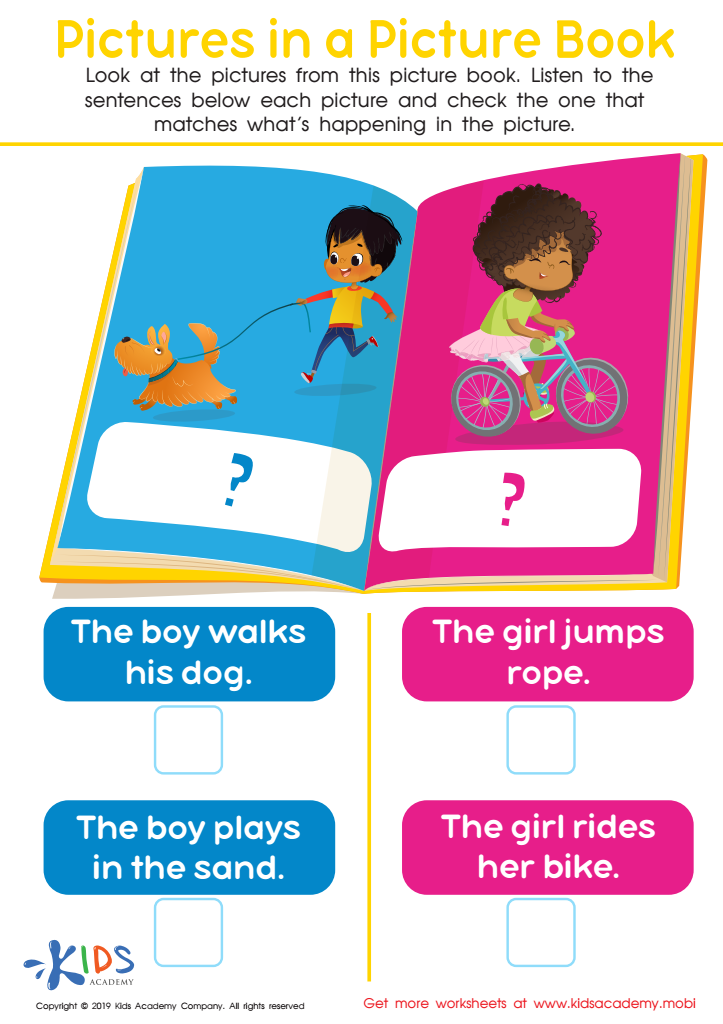

Picture in Books Worksheet
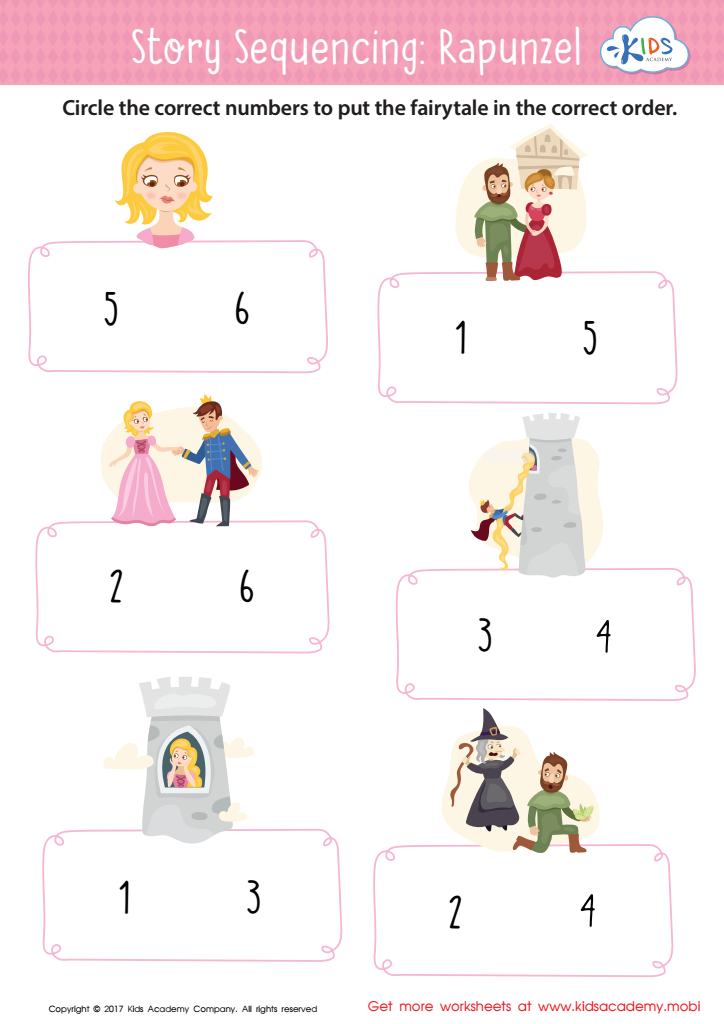

Rapunzel Story Sequencing Worksheet
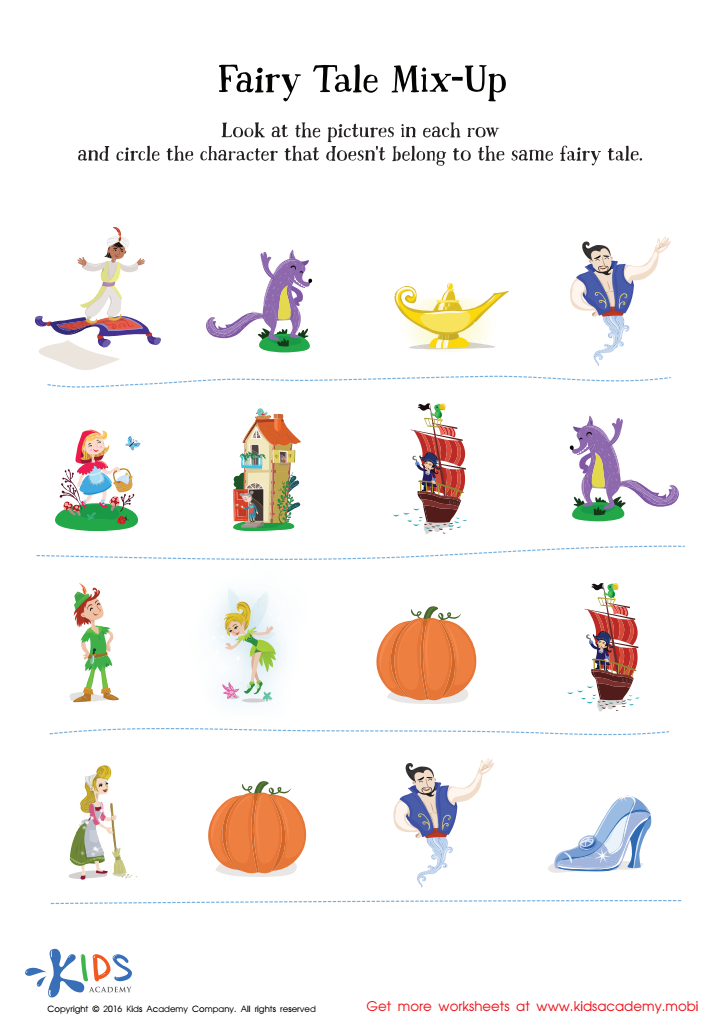

Fairy Tale Worksheet: Story Mix Up
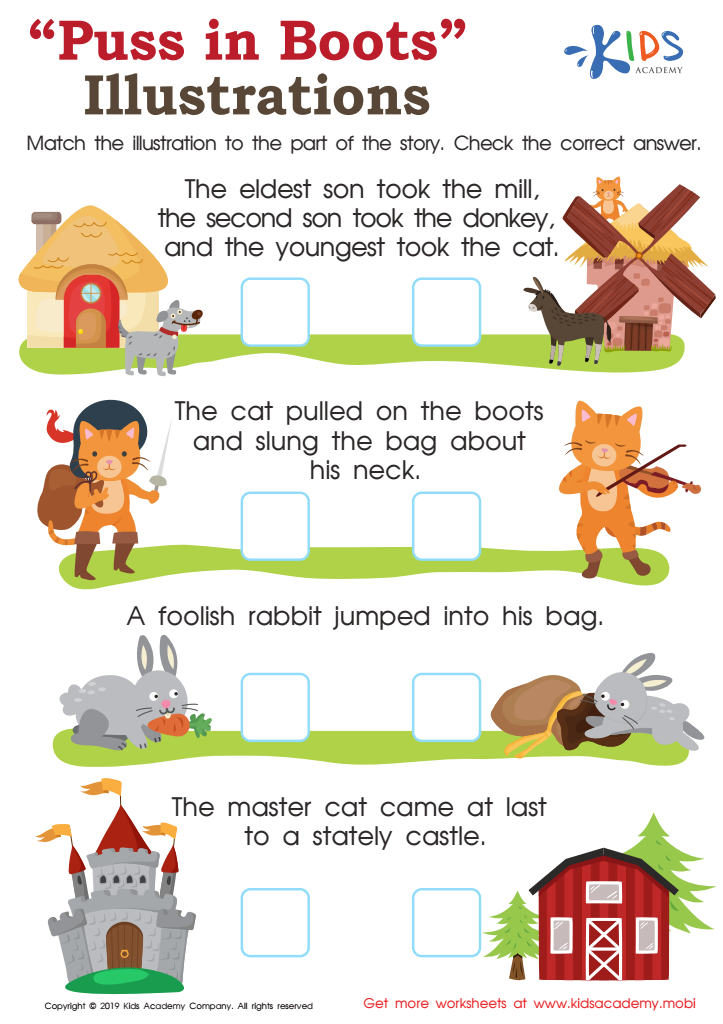

Puss in Boots Illustrations Worksheet
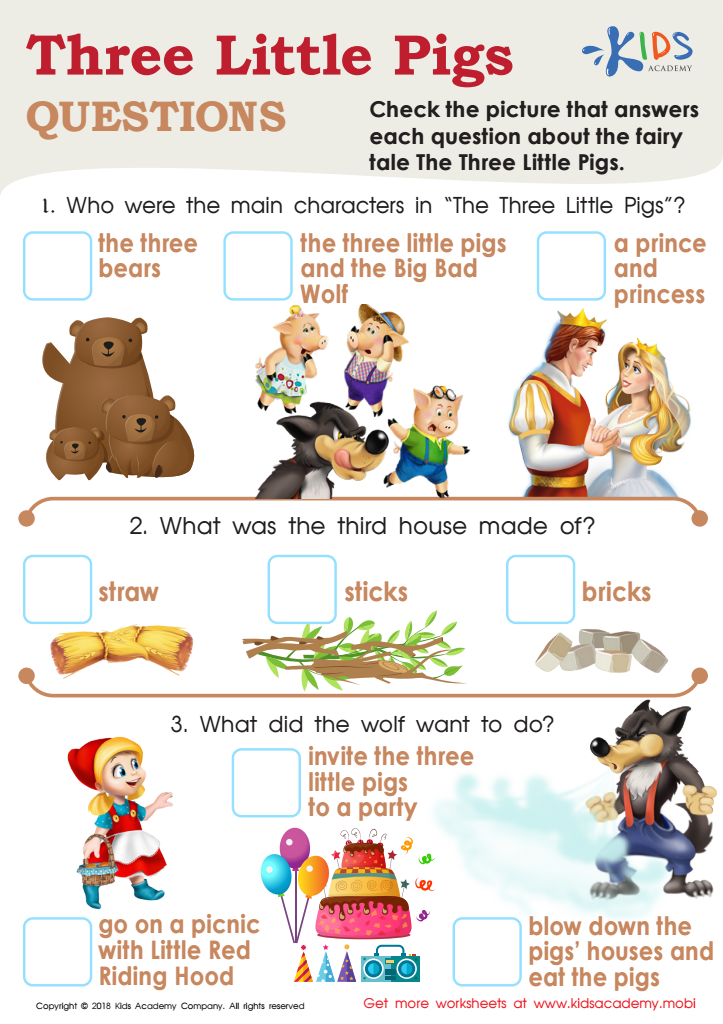

Three Little Pigs Questions Worksheet
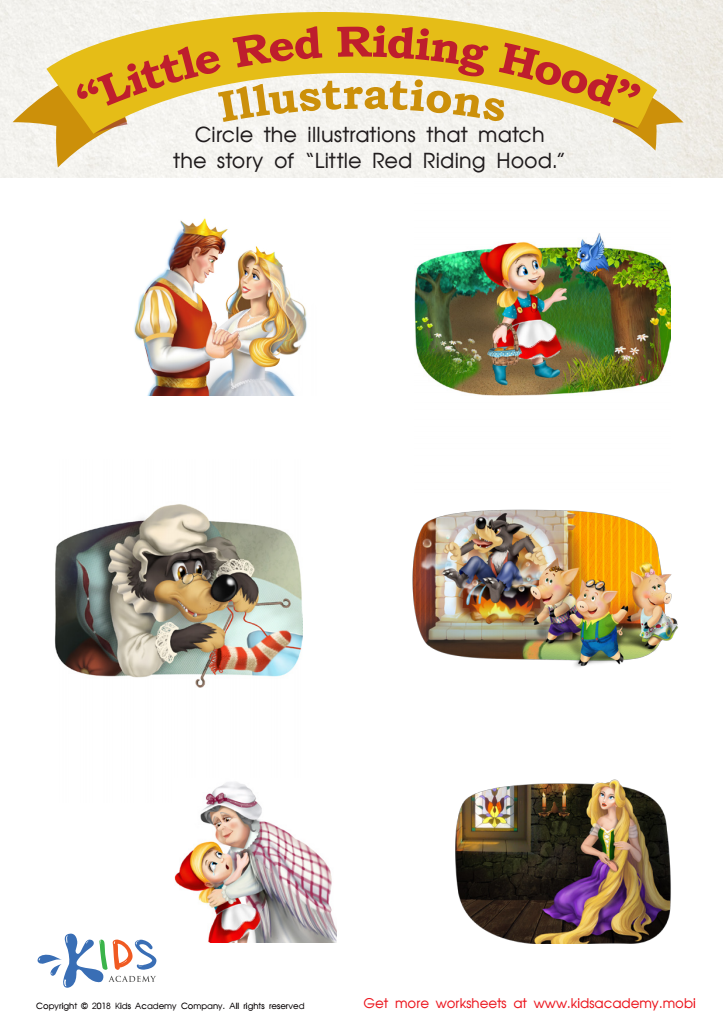

Little Red Riding Hood: Illustrations Worksheet
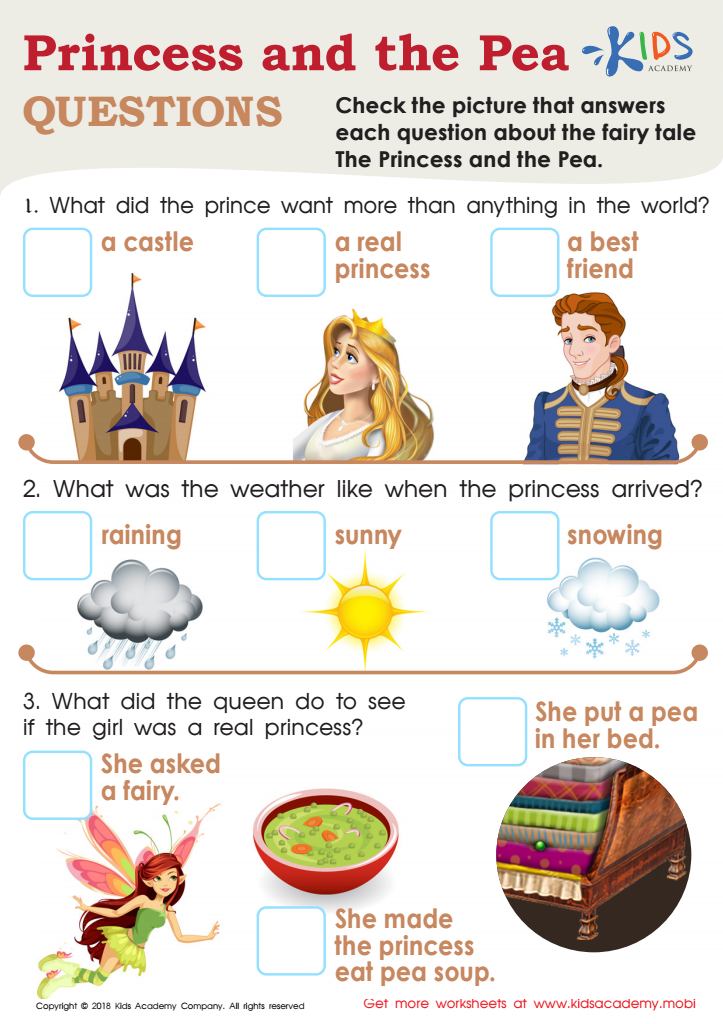

Princess and the Pea Questions Worksheet
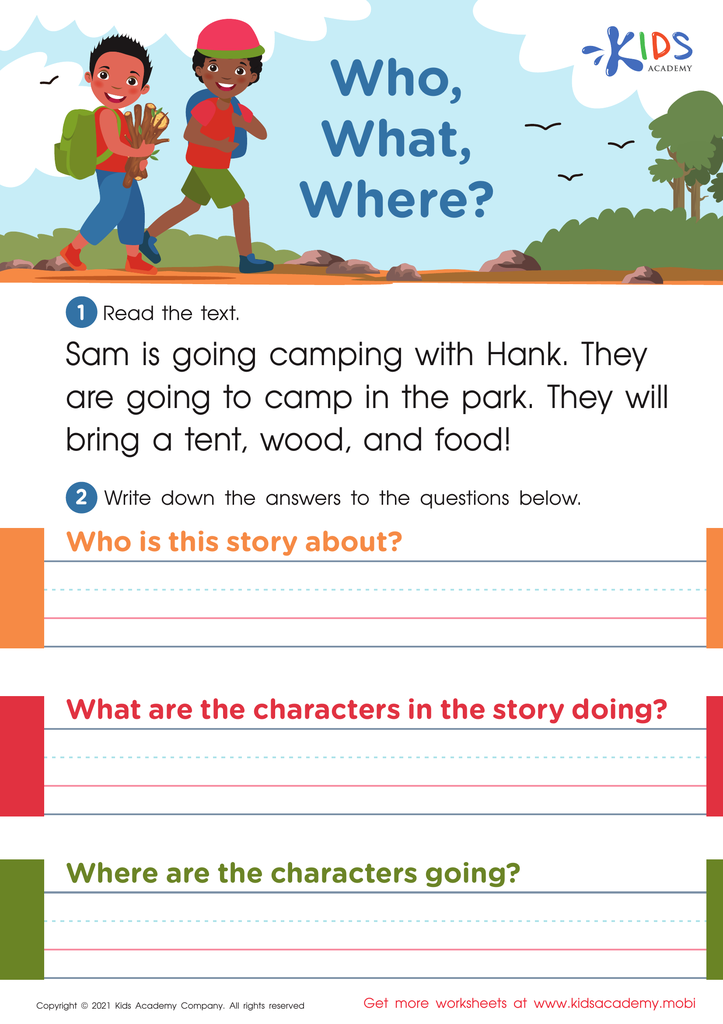

Who, What, Where? Worksheet
Story sequencing is a foundational skill crucial for the cognitive and linguistic development of children ages 3-4. When parents or teachers focus on this skill, they significantly enhance a child's ability to comprehend and organize information, which is integral to learning.
Firstly, story sequencing aids in the development of narrative skills. By understanding the beginning, middle, and end of a story, children learn to anticipate logical sequences in everyday experiences. This enhances their ability to predict outcomes, solve problems, and understand cause-and-effect relationships. These are critical thinking skills that form the backbone of future academic success.
Secondly, developing story sequencing skills boosts language acquisition. As children recount events in order, they enrich their vocabulary and improve their sentence structure. This early exposure to linguistic patterns supports the development of fluent communication skills, enabling children to express themselves more clearly and confidently.
Additionally, story sequencing fosters attention and memory. Focusing on the sequence of events helps youngsters enhance their short-term and long-term memory, a critical feature for academic tasks beyond reading, like math and science.
Moreover, engaging in sequencing activities with narratives nurtures social-emotional growth. Children develop empathy as they understand characters' actions and emotions within a sequence. Consequently, story sequencing in reading fiction equips children with the intellectual tools and emotional insights essential for holistic development.

 Assign to My Students
Assign to My Students












.jpg)









